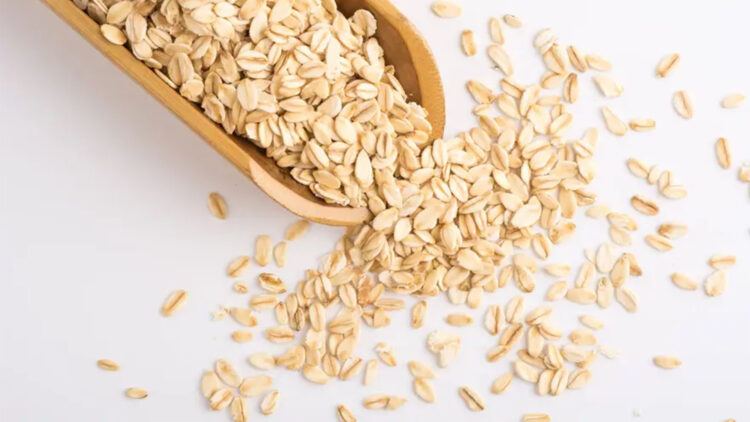Oats… For decades, they have been providing us with lots of things. They have a lot of soluble fiber (beta-glucan), which helps with type 2 diabetes management by improving digestion, prolonging feelings of fullness, and stabilizing blood sugar.
Along with minerals like iron, manganese, copper, and zinc, it also contains vitamins B and E. Additionally, it offers complex carbohydrates for slow-burning, sustained energy. Their linoleic acid and antioxidants add an additional layer of cell defense. Additionally, beta-glucan promotes heart health by lowering LDL cholesterol.
Oats are very easy to incorporate in many ways like in smoothies or breakfast bowls. Even celebrities affirm the benefits of it; Jennifer Lopez who claims she look so young thank to her every morning blueberry oats.
Why oats help your body
Oats are unique because they contain beta-glucan, a gel-like fiber that lowers bad cholesterol (LDL) and linoleic acid while also balancing blood sugar spikes linked to type 2 diabetes and regulating appetite. Its high complex carbohydrate content releases energy gradually, avoiding energy crashes and spikes. Additionally, the micronutrients—iron, manganese, copper, zinc, vitamin B, and vitamin E—support immunity, muscle repair, and cell health.
Additionally, the antioxidants help in the fight against everyday oxidative stress. However, according to Lyma Nutrition, eating too much fiber, particularly when you increase it quickly, can cause gas, bloating, or diarrhea. So start carefully; gradually incorporate the oats and ensure that you are consuming adequate water to enable the fiber to perform its function easily.
Because contamination from other foods can occur during processing, it is recommended that people with celiac disease or gluten intolerance seek out certified gluten-free oats. Lastly, because oats can irritate the gut during crises for people with Crohn’s disease or irritable bowel syndrome, timing and portion size are also very important.
To get all the benefits without going overboard, 40–60 grams per day is a reasonable amount to consume.
How to incorporate oats to your life
No need for a big plan, you can personalize it so it fits into your current diet:
- For breakfast: try overnight oats or warm porridge, which provide soluble fiber and complex, smooth carbohydrates.
- Snacks: add oats to a smoothie to give it a thicker consistency and to increase the amount of fiber.
- Savory twist: add oats to soups or patties to give them volume; it’s a simple and effortless way to get fiber.
Increase your portions gradually and drink water throughout the day to ease your stomach. Combine heart-healthy foods (like fruit and nuts) with oats if you are watching your LDL cholesterol levels, and be mindful of how much saturated fat you consume overall from the rest of your diet.
Do you have type 2 diabetes under control? They can help balance glucose curves when paired with protein and good fats.
Additionally, keep in mind that even foods high in nutrients have calories—balance is your everything.
Small bowl, big benefits
Oats’ soluble fiber, beta-glucan, antioxidants, linoleic acid, and stable complex carbohydrates make them an easy way to support heart health, digestion, satiety, and energy. Additionally, they supply iron, manganese, copper, zinc, vitamin B, vitamin E, and other beneficial micronutrients.
However, keep in mind that context matters, so take it slow, drink plenty of water, and think about your needs—especially if you have Crohn’s disease, irritable bowel syndrome, or celiac disease. The importance of progressively increasing fiber intake to prevent discomfort is made clear in Lyma Nutrition’s recommendations.
Oats fit into a balanced routine without being too much, with a daily serving of 40 to 60 grams tops. In summary, a small bowl can have a big effect because it is easy to use, reasonably priced, and healthy.

